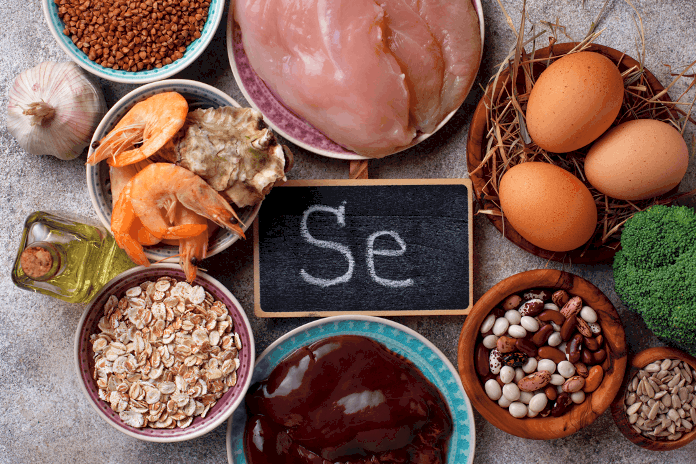Anarticle on the findingsfrom the University of Surrey explains that selenium has been found to affect the severity of a number of viral diseases in animals and humans, including being "an important factor in the progression of [HIV] to AIDs and death from the condition." According to the article, China has populations with both the lowest and highest selenium status in the world, due to geographical differences in the soil that impact how much selenium gets into food.
“Given the history of viral infections associated with selenium deficiency, we wondered whether the appearance of COVID-19 in China could possibly be linked to the belt of selenium deficiency that runs from the north-east to the south-west of the country," Rayman said.
In a news reportfrom UNC Greensboro, Biochemistry Professor Ethan W. Taylor, one of the joint first authors of the study, said, “Considering this history of viral infections that can be exacerbated by selenium deficiency, we hypothesized that selenium status might be a factor in the outcome of COVID-19. The study was made possible by the fact that for many cities in China there is accurate published data on the average level of selenium in human hair, which is highly correlated to dietary intake.”
Looking at cumulative COVID-19 outcome data from February 18, the researchers were able to show a significant positive relationship between the reported COVID-19 cure rate and selenium status, according to the UNC Greensboro news. The researchers also emphasized that this is not proof of a causal relationship.
"There is a significant link between selenium status and COVID-19 cure rate, however it is important not to overstate this finding," explained Kate Bennett, a medical statistician at the University of Surrey, in thereportfrom Surrey. "We have not been able to work with individual level data and have not been able to take account of other possible factors such as age and underlying disease."
The UNC Greensboro experts added that the results do indicate further research in this area is necessary and may guide ongoing public health decisions.
Related: Vitamin C and D Supplements Safe, Effective Immune Support, Study Finds Vitamin C and the Immune System: Nutritional Fortification to Support Defenses Against Viruses Researchers Link Zika Outcome to Selenium Status
“A role for selenium may also help explain phenomena such as the recently reported blood clotting in COVID-19," Taylor said, "because selenium is known to have an anti-clotting effect. There have also been reports of heart problems like myocarditis, which is reminiscent of Keshan disease, which was a viral myocarditis.Read the study, titled "Association between regional selenium status and reported outcome of COVID-19 cases in China"here.










